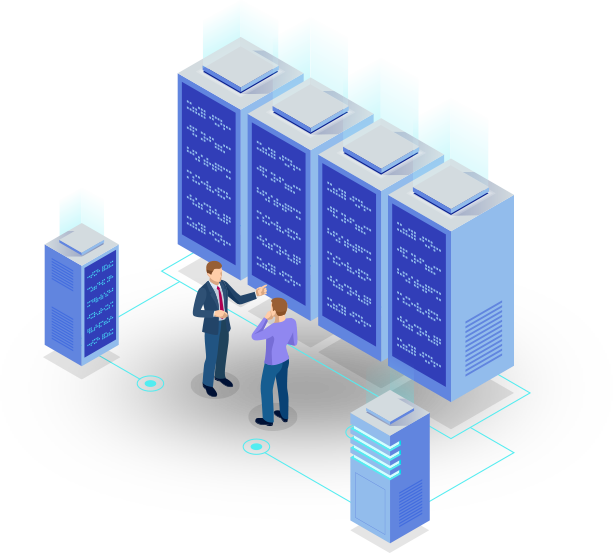Private Cloud
A Private Cloud is a model of cloud computing where the infrastructure is dedicated to a single user organization. A private cloud can be hosted either at an organization’s own data center, at a third party colocation facility, or via a private cloud provider who offers private cloud hosting services and may or may not also offer traditional public shared multi-tenant cloud infrastructure.
Typically, the end-user organization is responsible for the operation of a private cloud as if it were a traditional on-premises infrastructure, which includes ongoing maintenance, upgrades, OS patches, middleware, and application software management.
Private Cloud Solutions offer organizations more control over and better security of private cloud servers, although it does require a much higher level of IT expertise than utilizing a public cloud

WHY USE PRIVATE CLOUDS?
Private Clouds offer the same control and security as traditional on-premises infrastructure. Here are some reasons why organizations opt for private cloud computing:
Predictable Costs
Public cloud costs can be very unpredictable based on usage, storage charges and data egress charges. Private cloud costs are the same each month, regardless of the workloads an organization is running or how much data is moved
Predictable Performance
Because the hardware is dedicated rather than multi-tenant, workload performance is predictable and unaffected by other organizations sharing infrastructure or bandwidth
Long-term Savings
While it can be expensive to set up the infrastructure to support a private cloud, it can pay off in the long term. If an organization already has the hardware and network required for hosting, a private cloud can be much more cost-effective over time compared to paying monthly fees to use someone else’s servers on the public cloud.
Regulatory Governance
Regulations such as the EU’s GDPR may dictate where data resides and where computing occurs. In those regions where public cloud providers cannot offer service, a private cloud may be required. Additionally, organizations with sensitive data such as financial or legal firms may opt for private cloud storage to ensure they have complete control over personally identifiable or sensitive information.
Security
Private cloud security is enhanced since traffic to a private cloud is typically limited to the organization’s own transactions. Public cloud providers must handle traffic from millions of users and transactions simultaneously, thus opening a greater chance for malicious traffic. Since private clouds consist of dedicated physical infrastructure, the organization has better control over server, network, and application security.

WHY USE AS A PRIVATE CLOUD PLATFORM?
Bsoft India Technologies Pvt.Ltd. is a global leader in cloud infrastructure, and Bsoft India Technologies Pvt.Ltd. Private Cloud offers a service enabling organizations to simply pool all their servers into a single resource, which can be distributed among virtual machines that run application workloads across the enterprise.
Bsoft India Technologies Pvt.Ltd. supports the three major types of private cloud: virtual private cloud, hosted private cloud, and managed private cloud.
IS A PRIVATE CLOUD MORE SECURE THAN A PUBLIC CLOUD?
Private cloud can be more secure than public cloud, with one important caveat: Organizations must proactively ensure that security is strong and up to date in order to reap the benefits of private cloud. As long as an organization is not complacent about security, the private cloud can offer many advantages for security. Since private clouds are limited to specific physical machines, it can be easier to ensure physical security. Most private clouds sit behind a perimeter firewall and are accessed through private, secure network links, rather than through the public Internet. Additionally, the degree of control a business has over its private cloud can also make it easier to achieve regulatory compliance and governance mandates
